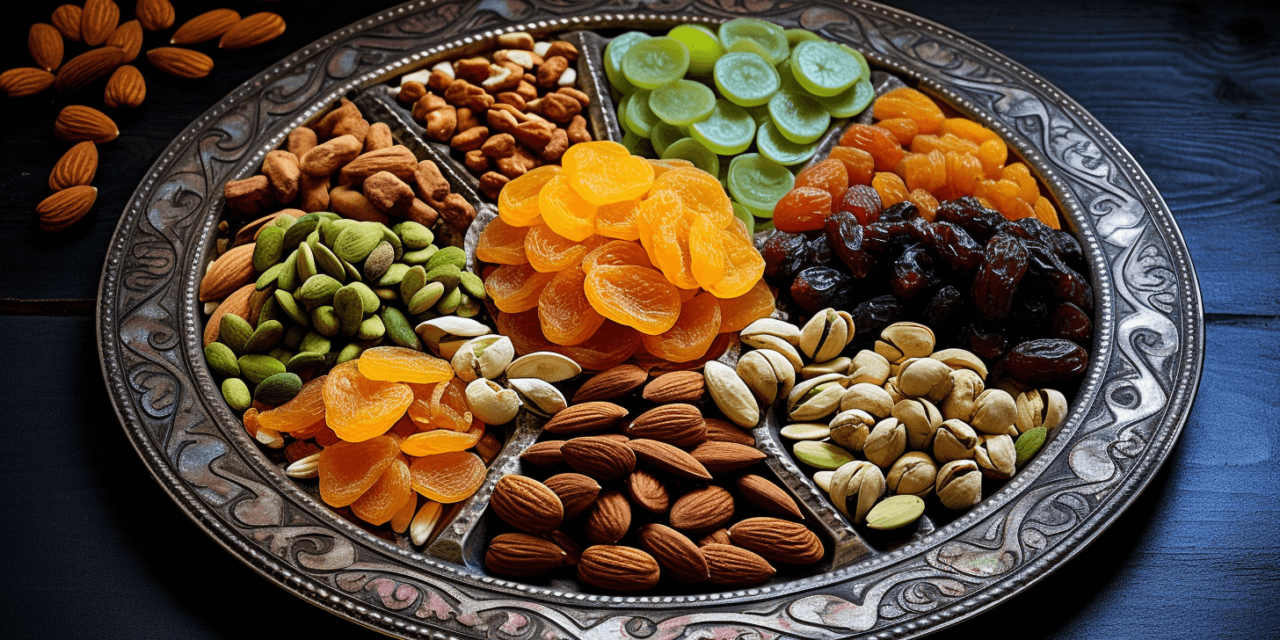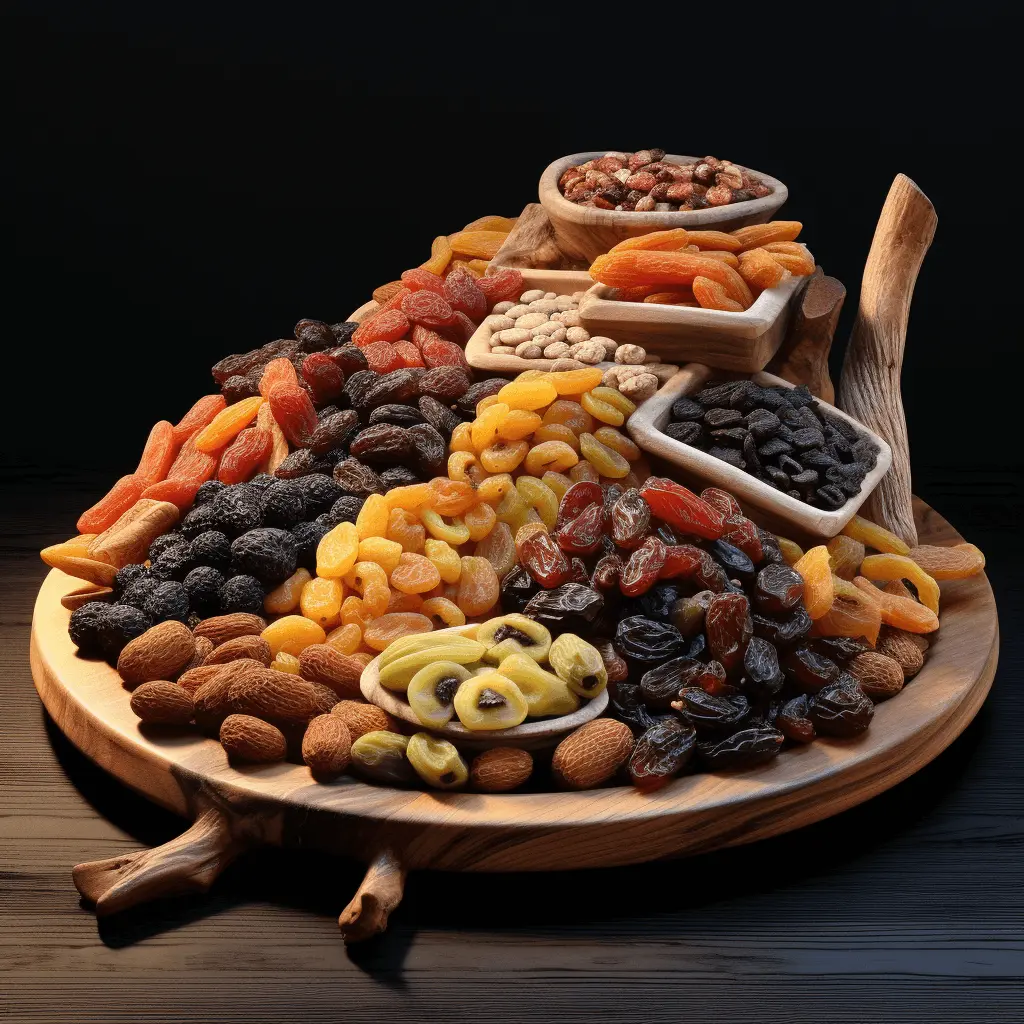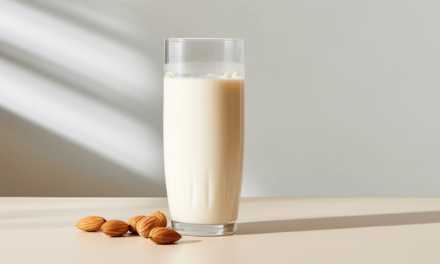Do you know that about 422 million people in the world have diabetes? A whooping high rate! But the good news is you can manage it with lifestyle changes and mindful eating. Moreover, what people with diabetes should eat or what shouldn’t has always been the talk of the town. And this makes us wonder, are dry fruits good for diabetes?
Well, here’s the scoop: Diabetic people CAN eat dry fruits, and these are the best alternatives to satisfy sweet tooth. Besides, what’s better than fulfilling your cravings with nutrient-dense yet delicious foods? All you need to do is add dry fruits to your diet in a balanced way that keeps your blood glucose level stable and prevents rapid spikes.
Are dry fruits good for diabetes?
Yes! Dry fruits are good for diabetes as they are loaded with vitamins, minerals, fibers, and antioxidants and should be a part of a diabetic diet. Moreover, consuming dry fruits in appropriate quantities can ward off any complications associated with diabetes. Also, their low glycemic index makes dry fruits a perfect delight for a diabetic person, which keeps them energized and healthy.
Effects Of Dry Fruits on Blood Sugar
When you eat any food, carbohydrates or sugar in it, rapidly break down and enter into the bloodstream. For a person without diabetes, the pancreas releases insulin to transport or store glucose. However, that’s not the case in diabetic patients.
In this condition, insulin is insufficient to keep the sugar in check. So, diabetic people need medications to help manage their blood sugar levels. This also implies that some foods cause a rapid surge in glucose than others, and you need to be careful.
The glycemic index of dry fruits is low to moderate, i.e., they are slowly absorbed into the bloodstream, preventing sudden splurge in blood sugar – a treat indeed!
Health Benefits of Dry Fruits for Diabetes Patients
Incorporating these highly nutritious snacks into your diet has numerous benefits in regulating blood glucose levels. However, it’s essential to take them in moderation due to their calorie-dense quality. Some of the benefits of dry fruits for diabetics are:
- Rich in Nutrients
Dry fruits are packed with minerals, vitamins, fibers, and fats, which are vital components for the body’s health. You’re less likely to go for unhealthy snacking as they keep you full longer. Also, fiber slows down the absorption of sugar into the bloodstream, thus maintaining stable blood glucose levels.
- Packed with Antioxidants
The antioxidants in dry fruits help destroy free radicals that are negatively impacting cell function. This process boosts the body’s overall function and protects diabetic people from any complications and damage caused by free radicals.
- Contains Healthy Fat
Dry fruits like almonds and walnuts contain healthy fats in the form of mono and polyunsaturated fats, omega-3 and 6 fatty acids. That’s why they’re good for your gut and heart health.
- Weight Management
For diabetes patients, weight management is a crucial step to keep them fit and healthy. Consuming dry fruits with other nutrient-dense but calorie-deficit food makes them an ideal ingredient for weight loss.
- Keep You Energized
Eating these superfoods after meals keeps you energetic and uplifts your mood. Also, adding them to the morning diet activates your body for an exercise that’s required for diabetes management.
Glycemic Index of Dry Fruits
The glycemic index (GI) measures how quickly food-related carbohydrates raise blood sugar levels. If you’re living with diabetes, then you should opt for only those foods with low or moderate glycemic index so that blood sugar levels are raised steadily without a sudden spike.
The GI scale (0-100) on which dry fruits are categorized goes as follows:
- High GI: 70 or high
- Medium GI: 56-69
- Low GI: 55 or below
Let’s see the glycemic index of some dried fruits:
| Dry Fruits | Glycemic Index |
| Pistachios | 20-25 (low) |
| Almonds | 0 (low) |
| Peanuts | 14-23 (low) |
| Cashews | 22 (low) |
| Dates | 42-62 (medium) |
| Figs | 35-40 (low) |
| Prunes | 29-38 (low) |
| Walnuts | 15 (low) |
List of Dry Fruits for Diabetes Patients
Dry fruits are nutritious foods that can be included in a diabetic meal plan. Without further ado, let’s discuss the list of fruits for diabetics to eat:
Pistachios
Pistachios are packed with minerals, vitamins, monounsaturated fats( healthy fats), and proteins, making them the best dry fruits for diabetes type 2. A study on nuts and diabetes showed that eating 2 ounces of nuts per day for 3 months in place of carbohydrate-rich foods improves sugar levels and reduces LDL cholesterol in people with diabetes.
This diabetic-friendly dry fruit has a low glycemic index, doesn’t cause a spike in sugar levels, and regulates the body’s response to food if taken before meals. Moreover, pistachios also keep you refreshed in between meals. They also have a beneficial impact on blood pressure, obesity, and inflammatory markers in diabetic patients.
Almonds
Of all the nuts, almonds are the best for diabetes. They have 0 glycemic index and should be consumed before meals or early in the morning. Almonds lower blood sugar levels and reduce the risk of heart disease in patients with type 2 diabetes.
Additionally, they promote normal nerves and muscle function. If taken after meals, almonds lessen the cholesterol levels and lower the glycemic index of the whole food. Almonds are high in calories, which means with overconsumption, there are chances of weight gain.
Peanuts
You might wonder if diabetics can eat peanuts. The answer is yes, they can! But not in salted form. Peanuts are crunchy and delicious dry fruits, the best option for people with diabetes.
Peanuts are a great source of proteins and fibers, monounsaturated fatty acids, which help control blood sugar and cholesterol levels. They have a low glycemic index, so they are a preferable snack to eat, but take care of portion size as peanuts are caloric-dense.
Cashews
Cashews are a tasty treat for your taste buds, rich in monounsaturated fatty acids, fibers, magnesium, and zinc. They regulate blood glucose levels and reduce the risk of heart disease.
One study showed that the group with cashew intervention for eight weeks resulted in lower serum insulin and reduced LDL/HDL cholesterol ratio (bad and good fats) in patients with type 2 diabetes.
Dates
Dates seem off the list from diabetic diet plans due to their sweet flavor, but that’s not the case. These dried fruits have natural sugar, which is the best alternative for people with diabetes.
Dates are rich in vitamins B1, B2, B3, and B5, as well as vitamins A and C. They have antioxidants to combat oxidative stress due to free radicals. Dates also have bad cholesterol-lowering properties.
Walnuts
Walnuts are a fantastic option for people with diabetes and have a low glycemic index. They are a source of vitamins, minerals, healthy fats, and fibers that make walnuts diabetic-friendly. Research shows that walnuts reduce inflammation due to alpha lipoic acid (ALA) present in them. In addition, they lower insulin levels and prevent type 2 diabetes.
Prunes
Prunes or dried plums are high in potassium which helps control blood pressure. They are also a rich source of fiber, vitamin A, and antioxidants. They help regulate blood glucose levels and protect from age-related diseases. You can have 4 or 5 prunes daily, but avoid sweetened ones.
Why is Portion Control important?
We all know that everything in excess is harmful, and the same goes for dry fruits for diabetics. You can easily lose track while eating these tasty, crunchy fruits, which can lead to overconsumption. So, aim for portion control to avoid the unease that comes with sugar levels spiking.
It’s recommended to eat only a handful of dry fruits per day. Above all, avoid salted and sweetened dry fruits as they contain high sodium and carbohydrates, respectively, which disrupt sugar levels in diabetic people. Only go for raw or dry roasted to get the most benefits.
Conclusion
So, are dry fruits good for diabetes? Absolutely, with portion control and the right choices! Dry fruits like almonds, walnuts, dates, prunes, and peanuts are rich in nutrients that are healthy for diabetes while maintaining blood sugar levels.
Moreover, consult a doctor or dietitian for a diabetic meal plan, as every individual has different needs. Therefore, with a balanced approach, you can enjoy these delicious edibles and manage diabetes.
FAQs
Which dry fruit is good for diabetes?
Almonds, walnuts, dates, cashews, prunes, figs, and peanuts are good for diabetes, but don’t delve into overeating.
Which dry fruit is not good for diabetes?
Those dry fruits whose sugar is in a higher range like dates, raisins, and figs are bad if eaten in excess. Also, some types of dates have high glycemic index, so it’s better not to overconsume.
How much dry fruits a diabetic person should eat per day?
Dietitians recommend eating 8-10 almonds, 3 walnuts, dates 2 or 3 spread throughout the day, and a handful of peanuts.





